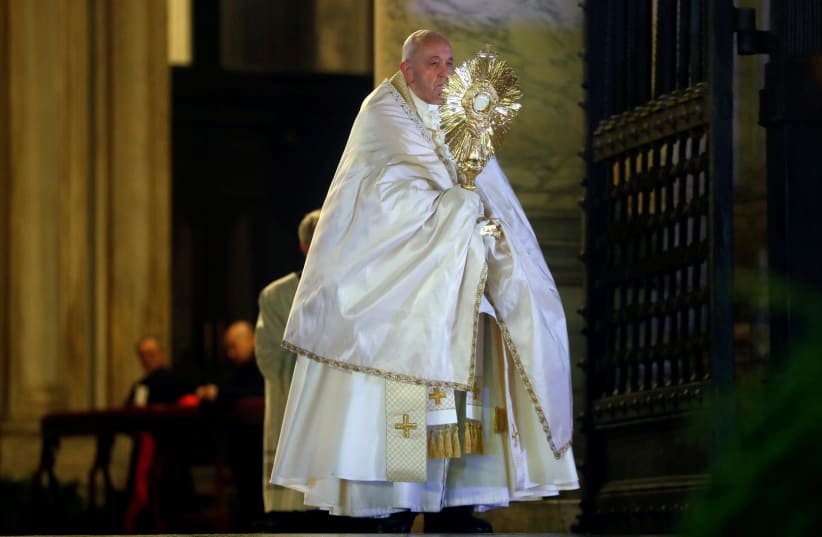The vigil, which normally takes place in a church packed with about 10,000 people, was attended by only about two dozen, including a few altar servers and a smaller-than-usual choir. Because of the coronavirus outbreak, it was scaled back to eliminate several traditional features, such as the baptism of adult converts and a long procession up the main aisle of Christendom's largest church.
Francis drew a comparison between the Gospel account of the women who found Jesus' tomb empty on the day Christians believe he rose from the dead and the uncertain state of the world today because of the coronavirus pandemic.
"Then too, there was fear about the future and all that would need to be rebuilt. A painful memory, a hope cut short. For them, as for us, it was the darkest hour," Francis said in his homily.
In countries around the world Catholics followed the papal service or Masses said by priests in their own empty churches and broadcast on television or over the internet.
"Do not be afraid, do not yield to fear: This is the message of hope. It is addressed to us, today. These are the words that God repeats to us this very night," Francis said.
He encouraged people to be "messengers of life in a time of death," again condemning the arms trade and urging those better off to help the poor.
"Let us silence the cries of death, no more wars! May we stop the production and trade of weapons, since we need bread, not guns," Francis said.
"Let the abortion and killing of innocent lives end. May the hearts of those who have enough be open to filling the empty hands of those who do not have the bare necessities," he said.
All of the pope's Holy Week activities were modified, taking place with no participation by the public.
It will be the same for the culminating event on Easter Sunday, when Francis says Mass and delivers his "Urbi et Orbi" (to the city and the world) blessing and message.The Easter Sunday Mass usually attracts up to 100,000 people in St. Peter's Square. This year, it will be held inside the church with a symbolic congregation of fewer than 20 people.
